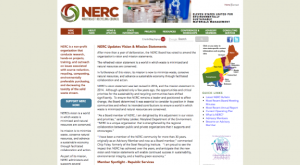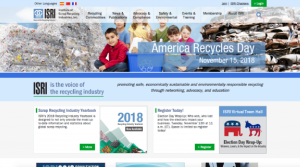Recycling in the US & Abroad
Back to Top
|
 |
|
A Brief History of Household Recycling
|
Social studies |
|
A Brief History of Household Recycling is an interactive timeline written by Sarah Goodyear for CityLab. The second part of a four-part series on urban breakthroughs, this resource employs bright colors and engaging design using archival material, photography, text, and graphics to present the history of recycling beginning with the onset of World War II in 1939 and extending to 2015. Intended as a concise overview rather than as an exhaustive report, this timeline highlights especially noteworthy occurrences, such as in 1980 when the city of Woodbury, NJ became the first US city to make recycling mandatory, noting that "People throw trash on [the mayor's] lawn in protest at first, but within three months Woodbury reaches 85 percent compliance." While much of the timeline focuses on American events, countries other than the US are discussed here as well, such as Germany, which adopted "a national ordinance that makes manufacturers responsible for the disposal of their packaging materials after the consumer is done with them" in 1991. [JDC] |
|





|
|
 |
|
Recycling: Who Really Leads the World?
|
Social studies |
|
Readers who are curious about comparing different countries' recycling participation rates may be interested this article from Resource, a UK-based magazine and communications company focused on "sharing knowledge to present waste as a resource." Here, Resource explains a 2017 analysis conducted in partnership with Eunomia Research & Consulting, an independent environmental consultancy with offices in four countries. They highlight how variations in the way countries quantify their recycling rates can lead to misleading comparisons, such as how "Sweden, for instance, has achieved a 99 percent rate - but that's only true if you count combined heat and power energy recovery as a form of recycling." Using data from Eurostat and the Organisation for Economic Co-operation and Development, the analysis found that after adjusting for countries' differing methods of measuring and reporting their municipal recycling rates, Germany leads the world with an adjusted rate of about 54 percent, followed closely by Taiwan, Wales, and South Korea. Written for general audiences, this article also links to the study's full report with data tables and explanations of their methodologies. [JDC] |
|





|
|
 |
|
Jambeck Research Group: Import Export Plastic
|
Social studies |
|
In January 2018, China implemented a policy that drastically restricts the plastic waste it imports from other countries. Until that time, most plastics that were globally exported for recycling went to China, so this change in policy has had a significant effect on the recycling industry. The Jambeck Research Group at the University of Georgia, led by environmental engineering professor Jenna Jambeck, researches issues related to plastic waste. Here, visitors can access the full text of the June 2018 research article, "The Chinese import ban and its impact on global plastic waste trade," published in the journal Science Advances, as well as the study's supplemental material, dataset, and a 30-second animation. Using data from the United Nations Commodity Trade Database, the study calculated that since 1992 China cumulatively imported about 45 percent of the world's plastic waste for a total of roughly 106 million metric tons (MT). The study also found that as a result of China's policy change, by 2030 approximately 111 million MTs of plastic waste will have nowhere to go under "business as usual" conditions. Interested readers may also want to explore other parts of this site to learn about related research. [JDC] |
|





|
|
 |
|
 |
|























